These companies honor Native history, culture, and legacy through gear and apparel.
Historically, the outdoor industry has largely excluded BIPOC (Black, Indigenous, and people of color) populations. Encompassing the native cultures of North and South America, Indigenous people alone have had almost no representation despite being naturally tied to the land and making their own outdoor gear and clothing for millennia. Not anymore. Scores of excellent Indigenous-owned outdoor brands are making their mark.
It comes after long-standing appropriation—from theft of sacred items to the use of symbols and imagery on clothing with no connection or respect for the culture.
The Difference Between Cultural Appropriation and Appreciation
“Those motifs mean something very real when they come from people who used the arrows to survive," says Martin Aranaydo, founder of the non-profit Indigenous People’s Power Project, a non-violent action training and support network that empowers Indigenous communities. “When these symbols are appropriated, by settlers, it perpetuates destruction of Indigenous culture. It’s erasure, a legacy of conquest, the myth of defeat, and settler colonialism.”
Related: Best Waxed Canvas Jackets for Men
It still goes on today. That’s why it's important to support Indigenous-owned brands in the outdoor space. Confused about the line between cultural appreciation and appropriation? Here's the difference: When fast-fashion (and sometimes even big-name) brands use an article of clothing that has cultural and/or religious significance as an accessory with which they can monetize and profit off of, that's appropriating culture.
When you buy a jacket, blanket, or jewelry from an Indigenous-owned business with the intent of learning and sharing in their customs and traditions, there's no malicious intent. So long as you're not demeaning a culture or reinforcing a stereotype, you're not engaging in cultural appropriation. Supporting Native brands is a great way to honor their history and show appreciation for craftsmanship.
It pays to be an educated consumer: Research who's producing the products you're buying so you can support causes you're passionate about.
Here are six of our favorite Indigenous-owned outdoor brands.
Best Indigenous-owned Outdoor Brands
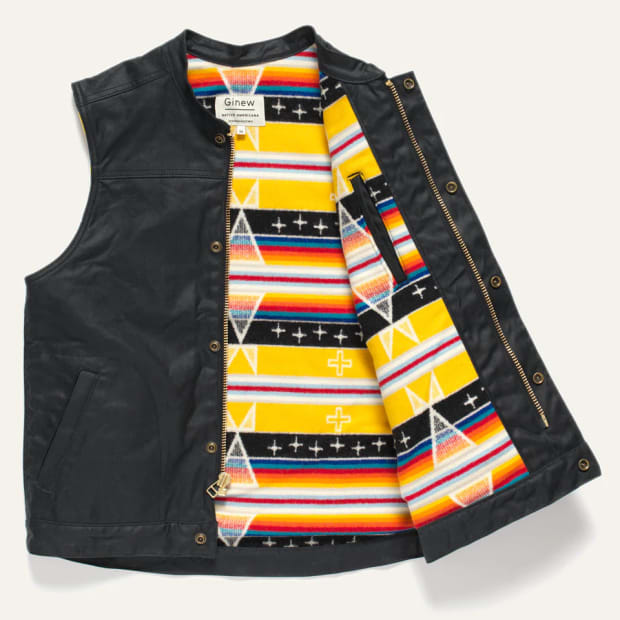
1. Ginew
Ginew is Native Americana. Founded by Amanda Bruegl (Oneida, Stockbridge-Munsee) and Erik Brodt (Ojibwe), the brand and family business (pronounced "gih-noo") is the first Native American-owned denim collection. Ginew focuses on heirloom-quality natural materials, like cotton and wool, while leaning into longevity and durability with selvedge denim, waxed canvas, cotton chambray, brass hardware, Pendleton-woven wool, and commercial-grade buttons.
Ginew is always expanding, but through shared successes—often collaborating with Native designers and artists who also receive part of the sales. The brand also shares profits with its community from fundraisers and donations that reflect its values. Its most recent fundraiser in collaboration with artist Steven Paul Judd (Kiowa and Choctaw) supported the creation of a re-designed skatepark on the Warm Springs Indian Reservation in Central Oregon.
Courtesy Image
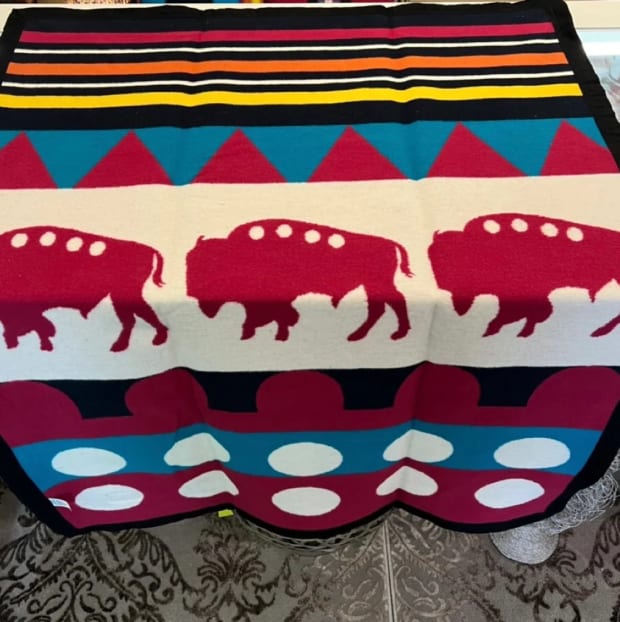
2. Boy Chief Trading Post
Named after their great-grandfather and legendary Blackfoot warrior, Boy Chief, the McDonald/Royal family has been preserving the warrior’s legacy while promoting Blackfoot culture and tradition in the U.S. and Canada with the Boy Chief Trading Post brand.
Based in Siksika, Canada, Boy Chief Trading Post is filled with Indigenous gifts, arts, crafts, and more. Symbolic blankets are the brand's prized products; they help honor the Blackfoot peoples and fuel their continuous fight to keep culture and traditions alive.
Courtesy Image
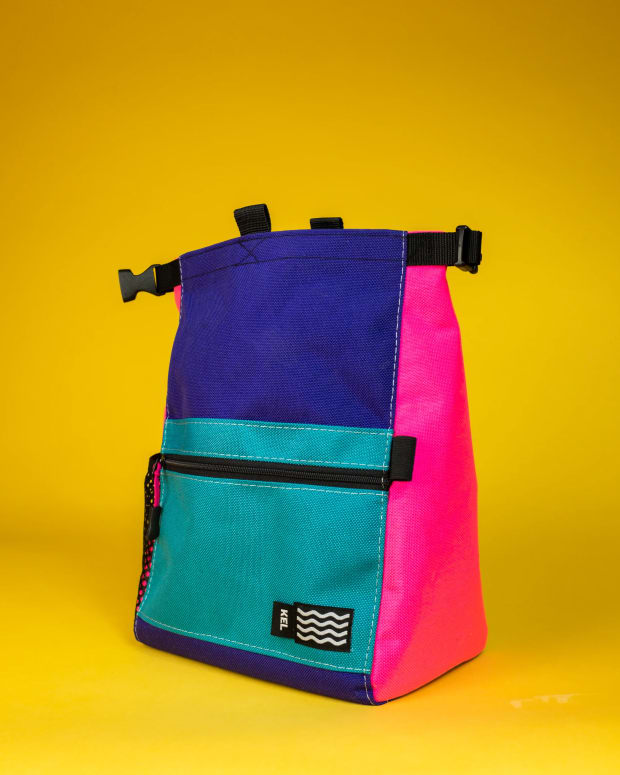
3. KEL Tech Gear
KEL Tech Gear was founded by designer Kelsey Deer. All products are made in Kahnawàke Mohawk reserve on the south shore of the Saint Lawrence River in Quebec, Canada. With a passion for practical outdoor-oriented products, Deer—who graduated from Lasalle College with a degree in technical clothing design—started small with chalk bags. She's since expanded the line to include dog treat training bags, tote bags, fanny packs, and more. Made with durable fabrics like 1000D Cordura and recycled Challenge sailcloth, KEL Tech products are highly functional, sustainable, and sturdy.
Courtesy Image
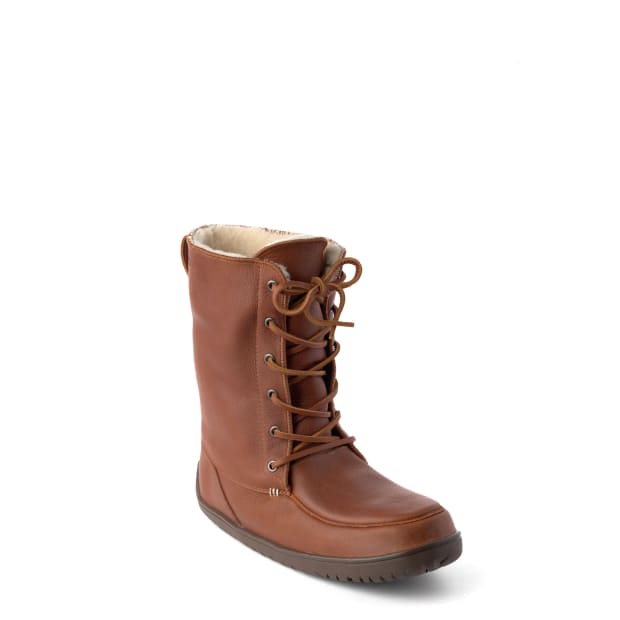
4. Manitobah
Manitobah, an Indigenous-owned footwear brand, was founded in Winnipeg in 1997 by entrepreneur Sean McCormick. The brand has become synonymous with mukluks—and famous for bringing this traditional sturdy footwear to the masses, along with mitts, blankets, bags, hats, and other attractive goods.
As one of Canada’s fastest-growing apparel companies, the brand not only sells its own designs and collaborations but has launched an Indigenous Market on its site—a platform for authentic, handmade work supporting Indigenous artisans.
Courtesy Image
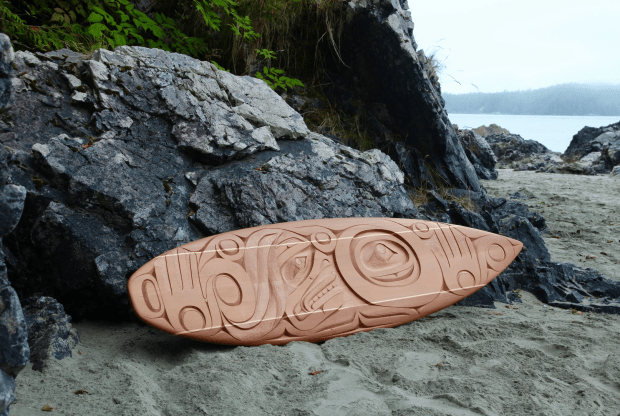
5. Nusmata
Nusmata (Jarrod Saunders), who comes from a long line of Native carvers, has been producing wooden works of art for over two decades. Saunders was given the traditional name Nusmata by his grandfather and master carver, Silyas Saunders, and was born in the Nuxalk Nation (Bella Coola).
Having trained under multiple masters, Nusmata is now renowned for his own contemporary, signature style that forges ahead while honoring tradition. In addition to carving cool stuff like surfboards, the artist's eclectic range of media includes graphic design, clothing, jewelry, and stretched giclee prints.
Courtesy Image
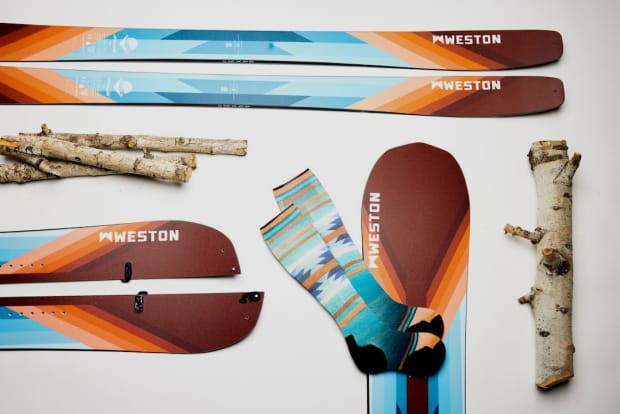
6. Natives Outdoors
Natives Outdoors is an Indigenous-owned athletic and creative collective. It began in March 2017 as a social media project by Dr. Len Necefer (Diné) as a way to support Indigenous people in outdoor recreation and call attention to their lack of representation in this industry.
Through design, consulting, and advocacy, Native Outdoors is shifting the narrative by working with outdoor industry partners like Eddie Bauer, Weston, Smartwool, and Ruffwear to develop products that highlight Indigenous artists, while addressing cultural appropriation head on. Native Outdoors also works with tribal governments, community organizations, and individuals to expand representation, access, and connection.
Courtesy Image
from Men's Journal https://ift.tt/n8Amp76
No comments:
Post a Comment